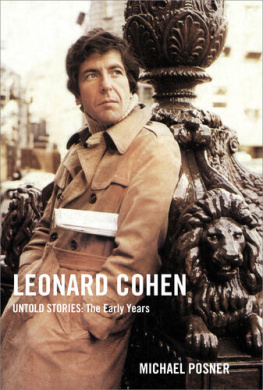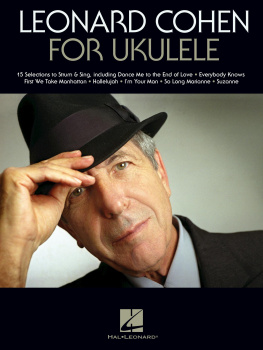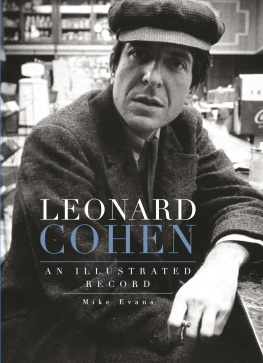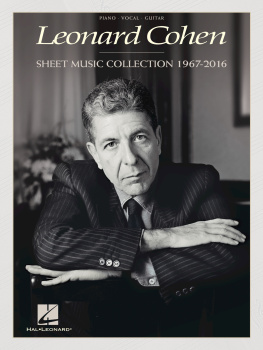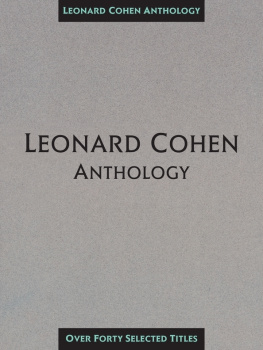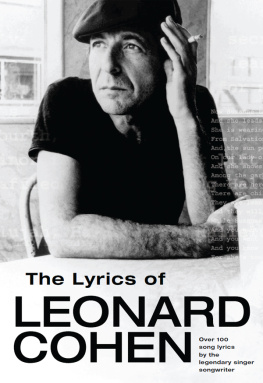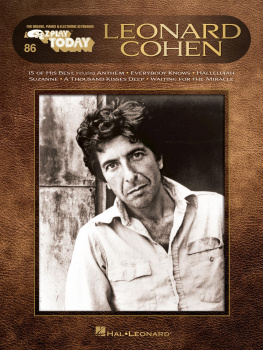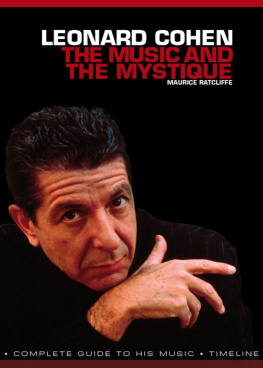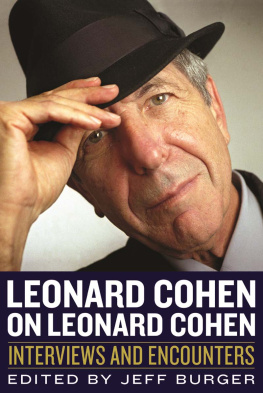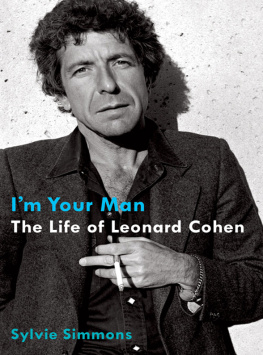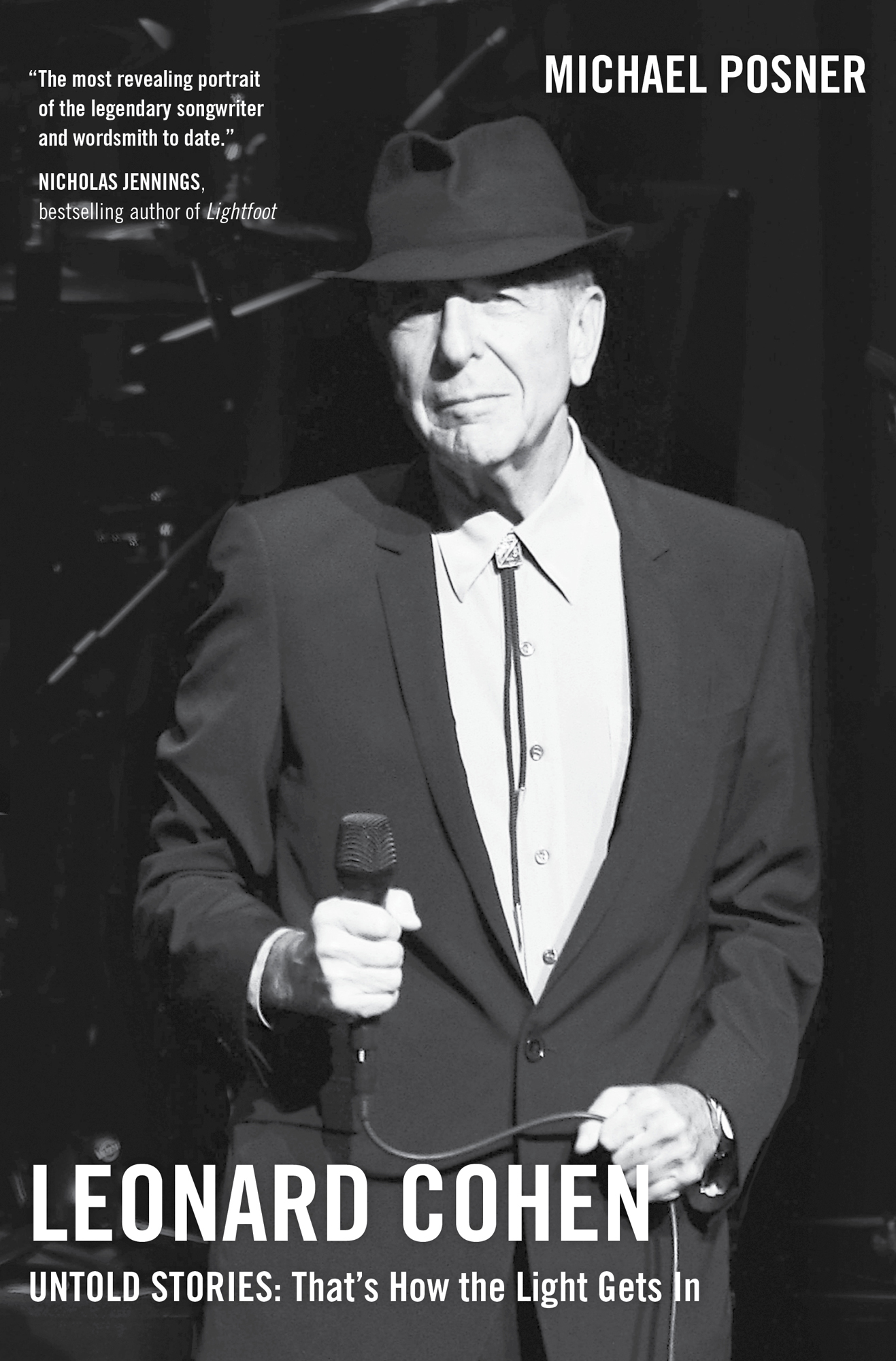Michael Posner - Leonard Cohen, Untold Stories: Thats How the Light Gets In, Volume 3
Here you can read online Michael Posner - Leonard Cohen, Untold Stories: Thats How the Light Gets In, Volume 3 full text of the book (entire story) in english for free. Download pdf and epub, get meaning, cover and reviews about this ebook. year: 2022, publisher: Simon & Schuster, genre: Detective and thriller. Description of the work, (preface) as well as reviews are available. Best literature library LitArk.com created for fans of good reading and offers a wide selection of genres:
Romance novel
Science fiction
Adventure
Detective
Science
History
Home and family
Prose
Art
Politics
Computer
Non-fiction
Religion
Business
Children
Humor
Choose a favorite category and find really read worthwhile books. Enjoy immersion in the world of imagination, feel the emotions of the characters or learn something new for yourself, make an fascinating discovery.
- Book:Leonard Cohen, Untold Stories: Thats How the Light Gets In, Volume 3
- Author:
- Publisher:Simon & Schuster
- Genre:
- Year:2022
- Rating:4 / 5
- Favourites:Add to favourites
- Your mark:
Leonard Cohen, Untold Stories: Thats How the Light Gets In, Volume 3: summary, description and annotation
We offer to read an annotation, description, summary or preface (depends on what the author of the book "Leonard Cohen, Untold Stories: Thats How the Light Gets In, Volume 3" wrote himself). If you haven't found the necessary information about the book — write in the comments, we will try to find it.
Poet, novelist, singer-songwriter, artist, prophet, iconthere has never been a figure like Leonard Cohen. He was a true giant in contemporary western culture, entertaining and inspiring the world with his work. From his groundbreaking and bestselling novels, The Favourite Game and Beautiful Losers, to timeless songs such as Suzanne, Dance Me to the End of Love, and Hallelujah, Cohen is one of the worlds most cherished artists. His death in 2016 was felt around the world by the many fans and followers who would miss his warmth, humour, intellect, and piercing insights.
Leonard Cohen, Untold Stories chronicles the full breadth of his extraordinary life. This third and final volume in biographer Michael Posners sweeping series of Cohens lifeThats How the Light Gets Inexplores the last thirty years of his life, starting with the late 1980s revival of his music career with the successful albums Im Your Man and The Future. It covers the death of his manager, Marty Machat, and the appointment of another who would ultimately be accused of stealing more than five million dollars from Cohen.
Personally, Cohen suffers the traumatic end of his long relationship with French photographer Dominique Issermann and begins a public romance with actress Rebecca De Mornay. When that relationship ends in 1993, as Cohen is about to turn sixty years old, he begins a deeply spiritual phase, entering the Mount Baldy monastery under the tutelage of Zen master Joshu Sasaki Roshiarguably the most important relationship in Cohens life. Ever the seeker, he then goes to Mumbai in 1999, the first of half a dozen trips to India to investigate Advaita Vedanta Hinduism, expanding his growing fascination with spirituality.
In 2008, Cohen makes his triumphant return to the concert stage, and for five years travels the world in an extraordinary final act of his life, giving almost four hundred performances over three continents. The book provides the first full chronicle of Cohens final months, fighting debilitating disease, while still creating three new studio albums, adding to his remarkable legacy.
Cohens story is told through the voices of those who knew him bestfamily and friends, colleagues and contemporaries, business partners and lovers. Bestselling author Michael Posner draws on hundreds of interviews to reveal the unique, complex, and compelling figure of the man TheNew York Times called a secular saint. This is a book like no other, about a man like no other.
Michael Posner: author's other books
Who wrote Leonard Cohen, Untold Stories: Thats How the Light Gets In, Volume 3? Find out the surname, the name of the author of the book and a list of all author's works by series.

